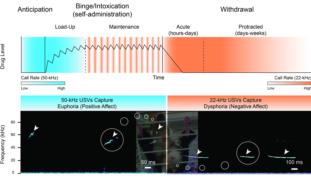Please wait...
About This Project
Center for Substance Abuse Research | Temple University School of Medicine | Philadelphia, PA, 19140
Addictions to cocaine and other stimulant 'designer' drugs remain unaided by pharmacotherapies. Several decades of work support the use of agents that augment neurochemistry (e.g., dopamine and glutamate transmission) to normalize reward- and mood-governing pathways that become dysregulated following chronic stimulant use. An unexplored but promising route is to test clinically-available antibiotics in models of mood and addiction to holistically evaluate their therapeutic potential.

Browse Other Projects on Experiment
Related Projects
The extention of life: A prosthetic that learns and adapts to the user in real time
Current prosthetics are often rigid, expensive and require users to adapt to the tools' limitations. This...
Rapid assessment of schizophrenia with a simple visual test
What if schizophrenia could be detected in 30 seconds? Today it's diagnosed through extended clinical interviews...
Vision for the future: Understanding perceptual strategies following visual loss
Many people will experience a decline in vision at some point in their life. For many people, this may be...



